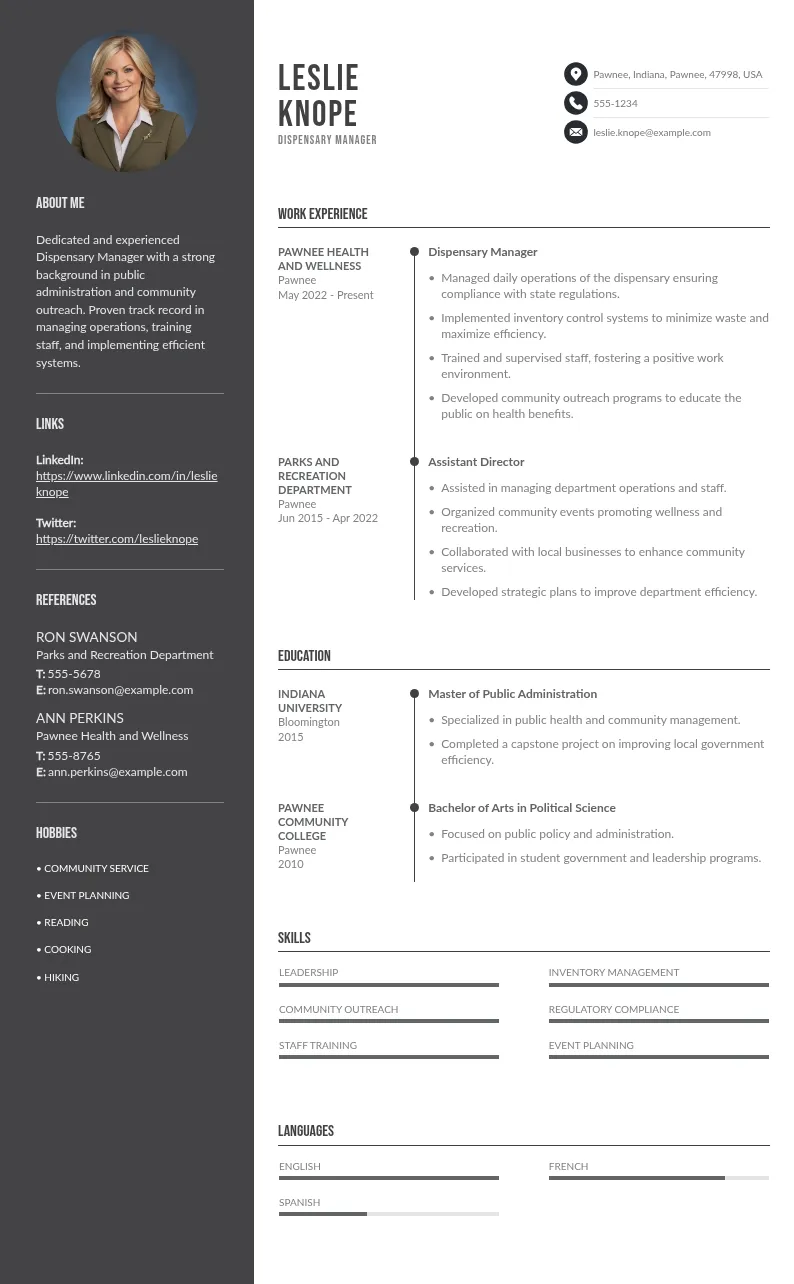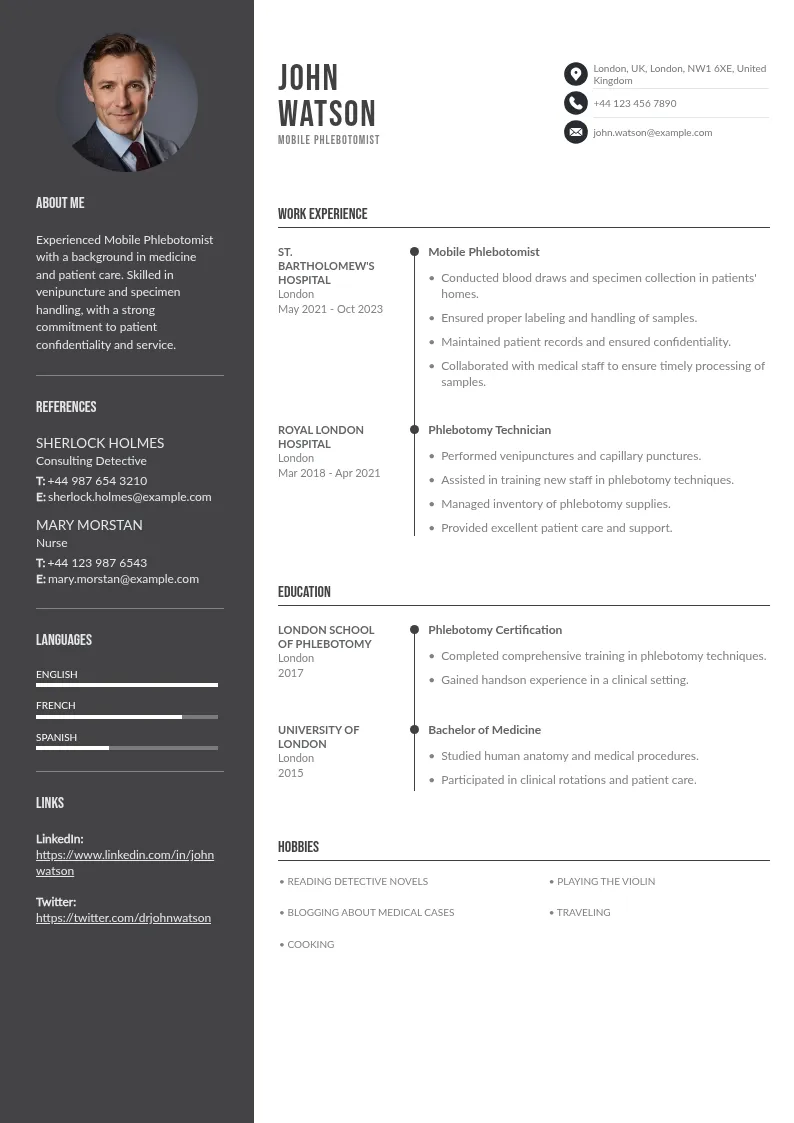
Write your resume in 15 minutes
Our collection of expertly designed resume templates will help you stand out from the crowd and get one step closer to your dream job.


They really reveal who you are as a person. And believe it or not. Employers truly care about that.
Extracurricular activities aren't just hobbies. They teach valuable skills. Leadership, teamwork, time management - these are gold. Did you know a large percentage of hiring managers prefer candidates with extracurriculars? It’s true. So, let's check how to feature these in your resume.
Here are the key points you'll find in this guide:
- Understanding Extracurricular Activities
- Types of Extracurricular Activities
- Highlighting Transferable Skills
- Showcasing Soft Skills
- Effective Resume Placement
Understanding Extracurricular Activities
Extracurricular activities are those pursuits you engage in outside of your actual regular academic or work schedule. Think sports, clubs. Volunteer work. Or any hobby you’re passionate about. These activities can really build valuable skills.

Definition of extracurricular activities
These activities are any organized, non-academic endeavor. This can be things like sports teams, debate clubs, student government, or volunteer work. Even hobbies like playing an instrument or writing a blog count. Anything that really shows commitment and passion.
Importance of extracurricular activities in a resume
Why include these activities on your resume? Simple. They truly make you stand out. Employers want well-rounded individuals. Did you know that many employers consider soft skills a key factor in hiring? Extracurriculars actually demonstrate these skills. Leadership, teamwork, problem-solving. All these can be showcased through your activities.
Plus, they actually provide great talking points in interviews for potential employers. They show you’re more than just about your job history. You’re a person with interests. And dedication! This can really set you apart from other candidates who only list job experiences.
Types of Extracurricular Activities
Extracurricular activities come in many forms. Each offers unique skills. And experiences. Let’s check some of the really impactful types.

Student government and union
Involvement in student council, government or union roles is a big plus. These positions show leadership. As well as organizational skills. You learn to represent peers. And make decisions while managing projects. Employers love candidates who can really lead. And make a difference!
Team sports and athletic activities
Playing team sports is more than just physical exercise. It teaches teamwork and discipline. Plus, perseverance. Whether you’re the team captain or a reliable player. These experiences show you can work well with others. And stay committed.
Clubs and societies
Joining clubs or societies really highlights your interests. And dedication. From chess clubs to environmental societies. These groups offer a platform to develop specialized skills. They show you’re proactive. And willing to truly pursue your passions outside of academics or work.
Volunteering and community service
Volunteering is a great way to give back. And gain experience. It actually shows empathy, dedication, and social responsibility. Also, it often involves problem-solving and teamwork. These are qualities employers highly value.
Tutoring and mentoring
Tutoring or mentoring demonstrates really strong communication skills. And a willingness to help others. It’s about sharing knowledge. And supporting peers or younger students. This experience highlights patience, clarity in explaining concepts, and leadership. They can also sometime show certain technical skills. Like computer or IT abilities.
Study abroad experience
This is a truly enriching experience. It shows adaptability. As well as cultural awareness. Also, independence. Navigating a new country and culture requires lots of problem-solving. And, of course, resilience. These are qualities that can certainly make you stand out in the job market. Especially for entry level positions.
Language skills and cultural exchange
Learning new languages and actually engaging in cultural exchanges show your global mindset. These activities highlight your ability to communicate with diverse groups. They also indicate openness. As well as adaptability. These are key in today’s globalized world.
Sorority or fraternity involvement
Being part of a sorority really goes beyond socializing. It involves leadership. And event planning. Plus, often community service. These experiences showcase your ability to manage responsibilities. And work within a structured organization.

Highlighting Transferable Skills
Identifying transferable skills gained from extracurricular activities
Extracurricular activities teach many valuable skills. These are often transferable to the workplace. Think leadership, teamwork, and problem-solving. Also, time management. You might not realize it. But these activities build real-world abilities.
For example, organizing a club event shows project management. Playing sports? That’s teamwork and discipline. Volunteering? Think empathy and social responsibility.
Emphasizing relevant skills in your resume
When writing your resume, focus on these skills. Mention specific activities and the skills you gained. Use strong action verbs. For example, “Led a team of 10 in organizing a charity event.” Or, “Managed budgets and schedules for a student club.”
Be really clear and concise. Show how these skills make you a truly great candidate. Employers want to certainly see what you can do. So, highlight these transferable skills.
Showcasing Soft Skills
Soft skills are truly essential in any job. They include leadership skills, communication skills, and problem-solving. These skills actually help you interact well with others. And handle various situations effectively. Let’s see how extracurricular activities can greatly help develop these crucial soft skills for a CV.

Developing soft skills through extracurricular activities
These activities are perfect for honing soft skills. Here’s how:
- Communication: Participating in debates or drama clubs greatly improves your speaking. And listening skills. You learn to convey ideas very clearly. And understand others better.
- Teamwork: Being part of a sports team or a group project teaches you to work really well with others. You learn to collaborate. Share responsibilities. And achieve common goals.
- Problem-Solving: Taking on leadership roles in clubs or organizing events requires really quick thinking. You encounter challenges. And must find effective solutions. This certainly sharpens your problem-solving abilities.
- Time Management: Balancing school, work, and extracurricular activities requires truly excellent time management. You learn to prioritize tasks. And meet deadlines.
- Leadership: Leading a team develops your ability to guide. As well as motivate others. You gain experience in decision-making. As well as taking initiative.
Effective Resume Placement
Knowing where to place extracurricular activities, like under the education section, on your resume is really key. It ensures they get the attention from hiring managers they deserve. Let’s look at the best spots.
Where to include extracurricular activity text on a resume
- Education Section: This is for when you’re a recent graduate. Place relevant activities under your education section. Especially if they are actually related to your field of study.
- Experience Section: Treat significant extracurricular roles like job experiences. Include them here. Particularly if they involved leadership. Or project management.
- Skills Section: Highlight specific skills gained from these activities. Such as leadership skills. Or communication skills. This is great if the activities are directly relevant to the job.
- Dedicated Section: Create a separate section such as “Extracurricular Activities”. Or “Leadership and Involvement.” This can be useful if you actually have several relevant activities to show off to a hiring manager.

Tips for choosing the right section
Here’s how to choose the best section:
Relevance: Place activities where they best match the job requirements. If an activity closely relates to the job, it might fit really well in the experience section. Or if you have something relevant to education or learning, place it under the education section.
Impact: Highlight activities with significant achievements. Or responsibilities. These deserve a truly prominent spot. Like under experience or their own section. Learn more about how to list achievements on your resume.
Balance: Don’t overcrowd one section. Distribute activities to create a very well-rounded resume.
Clarity: Be clear and concise. Use bullet points to describe your role. As well as your achievements. This makes it easier for employers to read. And understand.
Writing Effective Descriptions
Crafting compelling descriptions can make a truly big difference on your resume. Here’s how to do it effectively to show off to a hiring manager.
Including relevant details about extracurricular activities
Club or Organization: Name the club or organization you were involved in. Or the student council. For instance, "President of the Debate Club."
Role and Responsibilities: Specify your role and what you achieved. For example, "Led weekly meetings", "Organized debate tournaments", and "coached team members."
Achievements: Highlight specific achievements. Or outcomes. For instance, "Increased club membership by 30%. Through targeted recruitment strategies."
Skills Developed: Mention the skills you gained. Or strengthened. For example, "Enhanced leadership, public speaking, and critical thinking skills."
Using action verbs to describe achievements
Action verbs add power to a job description. As well as impact to your resume. They convey what you did. And emphasize your achievements. Here are some examples of action verbs to use:
- Led: Led a team or project.
- Organized: Organized events. Or activities.
- Coordinated: Coordinated schedules. Or logistics.
- Managed: Managed budgets or resources.
- Developed: Developed programs. Or initiatives.
- Achieved: Achieved goals. Or objectives.
- Improved: Improved processes or outcomes.
- Collaborated: Collaborated with team members. Or stakeholders.
- Facilitated: Facilitated meetings. Or workshops.
- Volunteered: Volunteered time or efforts.

For example, instead of saying "Was a member of the Student Council" on a job description. You could say "Served as Treasurer of the Student Council. Managing a $10,000 budget. And implementing fundraising initiatives."
Want to learn more about how to write different sections of your resume? Or similar topics? Check out these articles:
- How to Write Resume: An Ultimate Guide
- Most In-Demand Resume Skills Every Employer Wants in 2024
- Resume examples by field
The Final Word
Extracurricular activities aren't just like hobbies listed on your resume. They're really your secret weapon. They show who you are beyond actual grades or jobs. They reveal your passions. Your dedication. And your ability to thrive outside the norm. Employers want real people. Not just resumes.
So, showcase those activities proudly. They're not filler. They're the sparkle that catches their eye. And the story that makes you memorable. Flaunt those experiences. They truly define you.

















